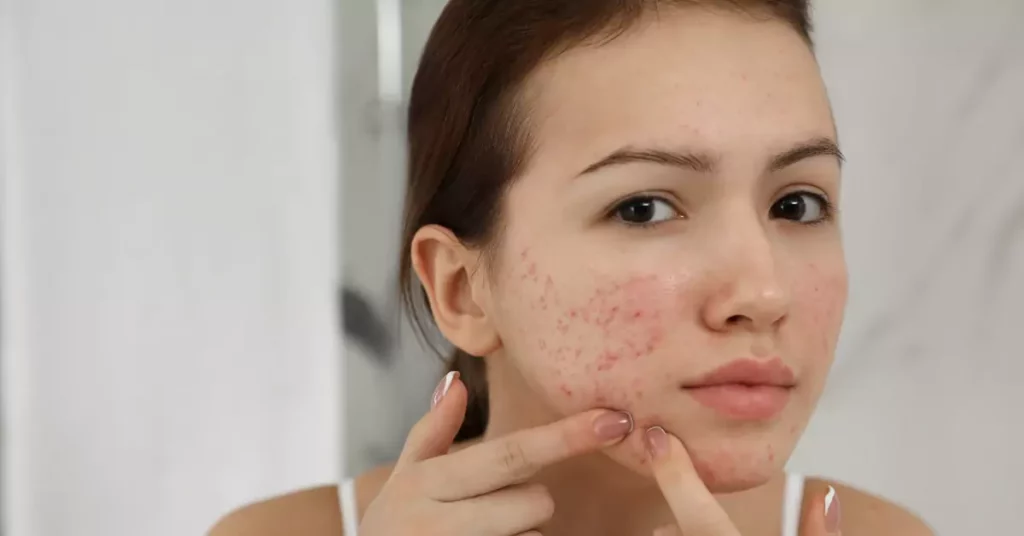Concerns Rise As Benzoyl Peroxide Acne Products Linked to Cancer Risk: FDA Urged to Act
TLDR
- Recent studies raise concerns about Benzoyl Peroxide in acne products, revealing high levels of Benzene
- Benzene, a known carcinogen, poses significant health risks, including cancer development
- Valisure, an independent lab, discovered Benzene in products, urging regulatory action due to potential cancer risk
- Valisure has asked the FDA to recall Benzoyl Peroxide products; major manufacturers express confidence in product safety
- Medical experts recommend exploring alternative acne treatments and consulting healthcare providers
- U.S. Representatives emphasize the need for swift regulatory action
- Consumers are urged to exercise caution with Benzoyl Peroxide products and seek guidance from healthcare professionals
- Broader implications highlight the importance of rigorous testing and oversight in the skincare industry
- An investigation is crucial for safeguarding consumer health and ensuring transparency in the skincare industry
Recent studies have raised red flags about the safety of Benzoyl Peroxide, a common ingredient in many acne treatment products.

Reports reveal concerning levels of Benzene, a known carcinogen, found in some popular over-the-counter acne treatments, sparking urgent calls for regulatory action.
According to the U.S. Centers for Disease Control and Prevention, Benzene found naturally in gasoline and tobacco smoke, can lead to leukemia in significant quantities.
Independent laboratory Valisure conducted thorough examinations on acne treatments containing Benzoyl Peroxide, uncovering alarming levels of Benzene in several products.
David Light, President of Valisure
The Benzene we found in Benzoyl Peroxide products is coming from the Benzoyl Peroxide itself, sometimes at hundreds of times the conditional FDA limit.
The findings have sent shockwaves throughout the medical community and raised serious consumer concerns.
Dr. Christopher Bunick from Yale School of Medicine emphasized the importance of exploring alternative acne treatments, advising patients to consult healthcare providers about avoiding Benzoyl Peroxide products.
“There is not a safe level of benzene that can exist in any skin care product, over the counter or prescription. The current data on BPO degrading into high levels of Benzene is extremely concerning given its prominent use in skin care, and this study should serve as another wake-up call for improved manufacturing and quality control of consumer healthcare products.”
“The discovery of Benzoyl Peroxide’s instability and formation of Benzene demands immediate attention,” stated U.S. Representative Rosa DeLauro, underscoring the urgency for regulatory action.
In response, Valisure has petitioned the Food and Drug Administration (FDA) to recall and suspend sales of Benzoyl Peroxide products in the U.S. market.
“This means the problem broadly affects Benzoyl Peroxide products, both prescription and over-the-counter, and necessitates urgent action,” emphasized David Light.
While the FDA acknowledged receipt of the citizen petition, the agency’s response remains pending.
Major manufacturers implicated in the report, including Proactiv, Clearasil, and Clinique, have issued statements expressing confidence in the safety of their products.
However, concerns linger regarding the potential health risks associated with continued use of Benzoyl Peroxide-containing acne treatments.
“Patients should talk to their healthcare providers about whether to avoid products with Benzoyl Peroxide,” advised Dr. Bunick, highlighting the importance of caution.
The broader implications of this discovery highlight the importance of rigorous testing and oversight in the skincare industry.
As consumers increasingly rely on over-the-counter products for skincare needs, ensuring product safety is crucial.
Given the gravity of the situation, consumers are urged to exercise caution when using acne treatments containing Benzoyl Peroxide and seek guidance from healthcare professionals on alternative options.
Regulatory agencies must prioritize public health and take decisive action to address potential risks associated with Benzoyl Peroxide products.
The investigation into Benzoyl Peroxide acne treatments is critical in safeguarding consumer health and ensuring transparency in the skincare industry.
Through additional research and regulatory measures, efforts can be made to reduce the dangers linked to benzene contamination, safeguarding the health of consumers globally.
WowRx uses only high-quality sources while writing our articles. Please read our content information policy to know more about how we keep our content reliable and trustworthy.
